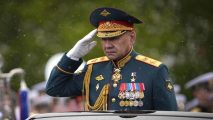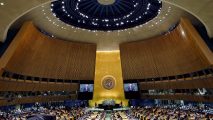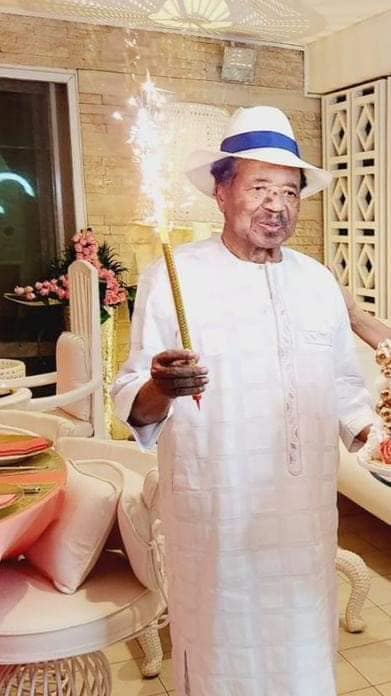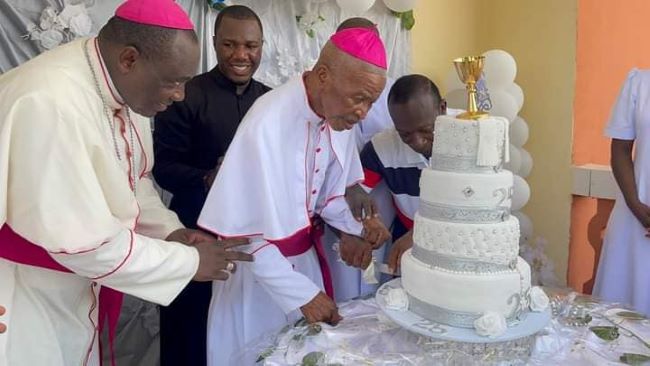Categories
Recent Posts
- Football: Mbappe’s final PSG home game ends in defeat as he bids farewell to fans
- US Secretary of State says Israel offensive on Rafah would not eliminate Hamas
- Russia: President Putin set to replace Shoigu as defense minister
- NERA 10: Nigeria House of Reps to sit over petition presented by Prof. Carlson Anyangwe
- UN General Assembly resolution urges fresh vote on Palestinian statehood
Archives
- May 2024
- April 2024
- March 2024
- February 2024
- January 2024
- December 2023
- November 2023
- October 2023
- September 2023
- August 2023
- July 2023
- June 2023
- May 2023
- April 2023
- March 2023
- February 2023
- January 2023
- December 2022
- November 2022
- October 2022
- September 2022
- August 2022
- July 2022
- June 2022
- May 2022
- April 2022
- March 2022
- February 2022
- January 2022
- December 2021
- November 2021
- October 2021
- September 2021
- August 2021
- July 2021
- June 2021
- May 2021
- April 2021
- March 2021
- February 2021
- January 2021
- December 2020
- November 2020
- October 2020
- September 2020
- August 2020
- July 2020
- June 2020
- May 2020
- April 2020
- March 2020
- February 2020
- January 2020
- December 2019
- November 2019
- October 2019
- September 2019
- August 2019
- July 2019
- June 2019
- May 2019
- April 2019
- March 2019
- February 2019
- January 2019
- December 2018
- November 2018
- October 2018
- September 2018
- August 2018
- July 2018
- June 2018
- May 2018
- April 2018
- March 2018
- February 2018
- January 2018
- December 2017
- November 2017
- October 2017
- September 2017
- August 2017
- July 2017
- June 2017
- May 2017
- April 2017
- March 2017
- February 2017
- January 2017
- December 2016
- November 2016
- October 2016
- September 2016
- August 2016
- July 2016
- June 2016
Featured
Most Commented Posts
 4 Anglophone detainees killed in Yaounde
4 Anglophone detainees killed in Yaounde
19 comments Chantal Biya says she will return to Cameroon if General Ivo Yenwo, Martin Belinga Eboutou and Ferdinand Ngoh Ngoh are sacked
Chantal Biya says she will return to Cameroon if General Ivo Yenwo, Martin Belinga Eboutou and Ferdinand Ngoh Ngoh are sacked
13 comments Anglophone Nationalism: Barrister Eyambe says “hidden plans are at work”
Anglophone Nationalism: Barrister Eyambe says “hidden plans are at work”
12 comments The Anglophone Problem – When Facts don’t Lie
The Anglophone Problem – When Facts don’t Lie
12 comments Largest wave of arrest by BIR in Bamenda
Largest wave of arrest by BIR in Bamenda
10 comments
Latest Tweets
Featured
-

Football: Mbappe’s final PSG home game ends in defeat as he bids farewell to fans
-

US Secretary of State says Israel offensive on Rafah would not eliminate Hamas
-

Russia: President Putin set to replace Shoigu as defense minister
-

NERA 10: Nigeria House of Reps to sit over petition presented by Prof. Carlson Anyangwe
-

UN General Assembly resolution urges fresh vote on Palestinian statehood
-

Football: Mbappe announces he will leave Paris St-Germain
-

Southern Cameroons Crisis: 5 Cameroonian soldiers killed in Manyu Division
© Cameroon Concord News 2024





21, January 2022
Double Standard: Total Energies withdraws from Myanmar over worsening abuses but remains key sponsor of the Africa Cup of Nations 0
It has often been said that helping to promote human rights globally has always had a political dimension. The so-called world powers often press these issues in the case of those countries of which they disapprove and ignore or downplay transgressions by friendly countries.
The recent decision by French energy giant Total Energies to withdraw from Myanmar over what the company described as “worsening human rights abuses” and Total Energies continued financial support and investment in the current Africa Cup of Nations holding in Cameroon-a nation with the worse human rights record in Africa has finally justified the assertion that the use of human rights as a policy tool, and hence the politicization of the human rights issue, has attained new heights.
French oil giant Total Energies on Friday said it would withdraw from Myanmar over “worsening” human rights abuses committed since the country’s military took power in a February 2021 coup.
Total Energies said “The situation, in terms of human rights and more generally the rule of law, which have kept worsening in Myanmar… has led us to reassess the situation and no longer allows TotalEnergies to make a sufficiently positive contribution in the country.”
Cameroon Intelligence Report understands the French energy giant will withdraw from its Yadana gas field in the Andaman Sea, which provides electricity to the local Burmese and Thai population, six months at the latest after the expiry of its contractual period.
The company also said it had not identified any means to sanction the military junta without avoiding stopping gas production and ensuing payments to the military-controlled Myanmar Oil and Gas Enterprise (MOGE).
However, for such Total Energies measures to be effective, they must apply to all countries in an equal fashion. Yet this has never been the case. Several countries in Africa including Cameroon have contravened international standards of human rights, and yet they have received very different treatment.
It will soon be five years since the government of Cameroon made a huge and costly mistake by thinking that all political issues must only be addressed through repression and oppression. After close to five years of fighting, the President Paul Biya regime has transformed the English-speaking part of the country into a massive killing field.
The madness has lasted for too long and Total Energies is yet to see that it is time for common-sense and wisdom to prevail. The reckless killing of English speaking Cameroonians by soldiers militarily equip with money provided from business transactions with Total Energies only underscores the fact the French energy giant is interested in giving a slap on the wrist to the 40-year old Biya regime in Yaoundé.
This special treatment of the Francophone dominated Biya regime in Yaoundé by the French administration and French multinationals has served neither that country nor French interest well. It has emboldened Cameroon under the 88-year old President Biya to continue its disregard for human rights and support for international crime groups without fear of any retaliation.
The story of the armed kidnapping of 10 Anglophone Cameroon academics now known as the NERA 10 in Abuja and armed smuggling to Yaoundé under cover of darkness; the story of their incommunicado detention at DIA in Nigeria and later at SED in Cameroun; and the story of their nocturnal ‘trial’,‘ conviction’ and ‘sentence’ to life by Cameroun’s Tribunal Militaire – all this was shrouded in complete mystery and illegality. The Nera 10 were kidnapped by plain clothes Nigerian military in a joint operation with members of Cameroun’s military. It is now known that they were smuggled out to Yaoundé by members of the armed forces of Cameroun with the complicity of Nigeria’s military. The illegality of their seizure has further compounded the illegal refoulement of all ten of them, refugees and certified asylees, back to Cameroun, back to the regime and country from which they are escaping persecution and possible death. Upon arrival in Yaoundé and after about a year of detention at SED under atrocious conditions, the Nera 10 were moved to the cramped and insalubrious life-threatening Kondengui prison, and then arraigned before the Tribunal Militaire, Yaoundé- a terror agency of the Yaoundé regime. After more than a year and a half of detention, the Nera 10 were hurriedly brought before that tribunal on a certain night and put through the motion of a ‘trial’ under cover of darkness. They are denied access to counsel. They are not given the opportunity to be heard. They are ‘convicted’, and ‘sentenced’ to life imprisonment and a fine of more than US$525 million each.
For 5 years and counting, the Cameroon government Francophone dominated military and their private militias have been committing genocide in English speaking Cameroon. More than 32,500+ civilians have been killed; over a million children are out of school; 550+ villages have been razed down, 3,000+ are presently in detention centers and prisons; hundreds of our women and girls have been raped; thousands of our loved ones are missing. The Norwegian Refugees Commission (NRC) has stated two years in a roll that this is the world’s most under-reported crisis – obviously because French multinationals such as Total Energies are helping the Biya regime to block access to the international community and are shielding and trying to clean up the crimes they are committing in English speaking Cameroons.
The special treatment of Francophone African dictators has undermined the cause of human rights throughout the sub Saharan region and has led to growing cynicism regarding the international community’s commitment to upholding human rights-the aftermath being that coups are being celebrated in countries such as Mali and Guinea. Like peace and security, human rights are indivisible. Either the same standards and principles are applied to all and transgressors are punished equally or the defense of human rights will be reduced to mere rhetoric that convinces no one.
By Soter Tarh Agbaw-Ebai